Kristoff: Winning the Tour of Flanders proves you’re a classics rider
Norwegian takes initiative to claim the Ronde
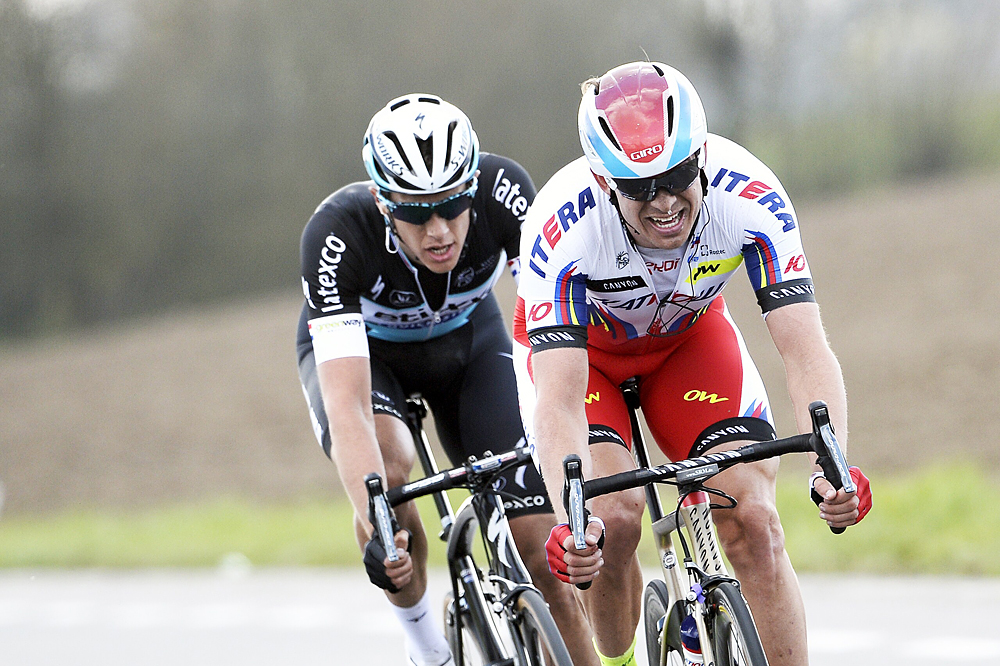
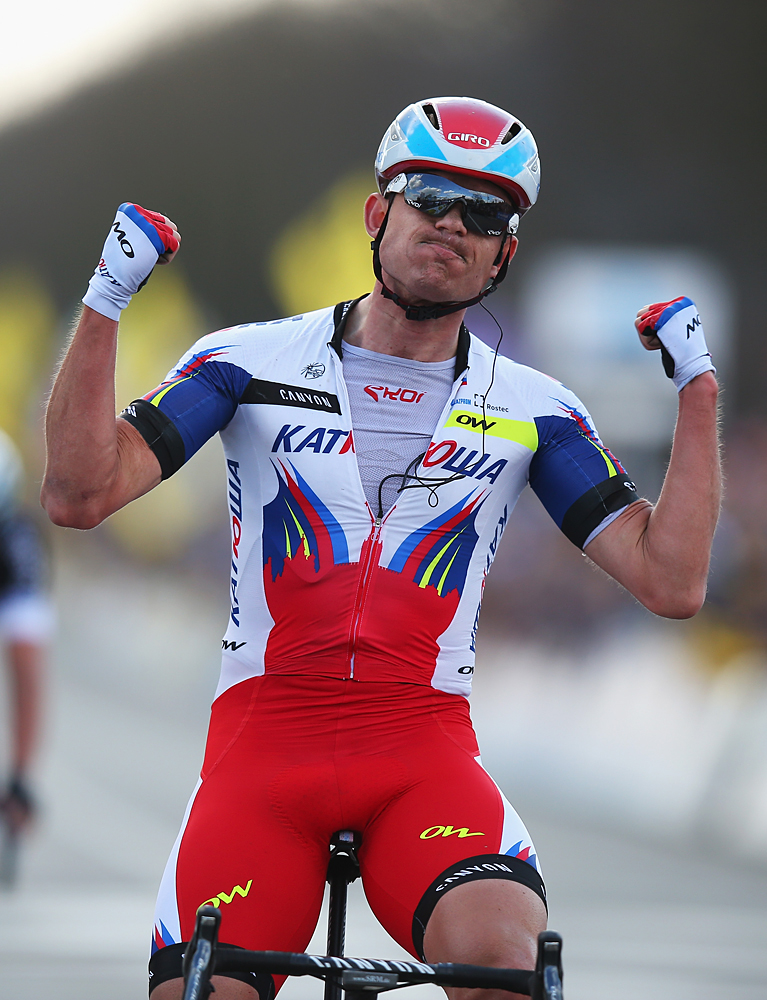
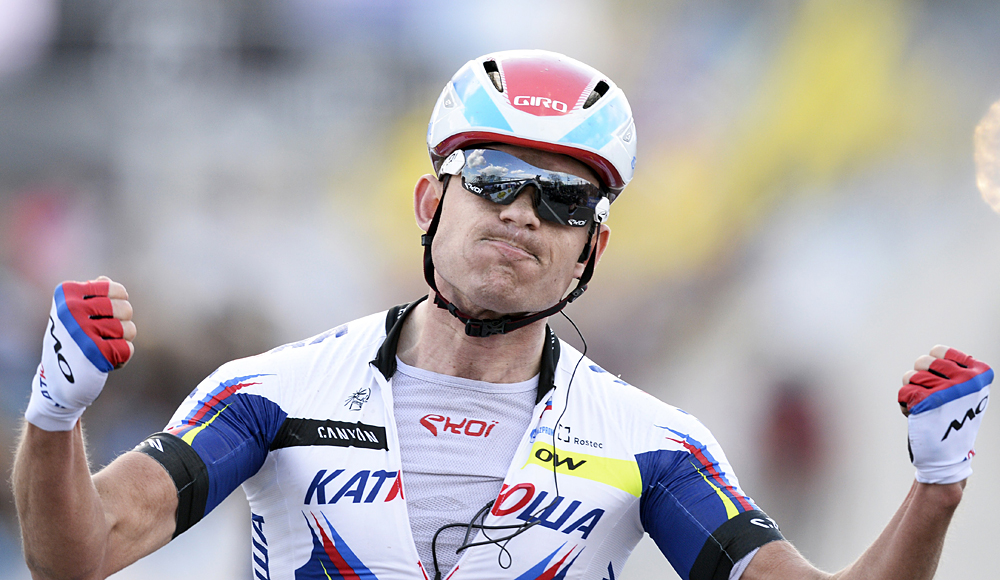
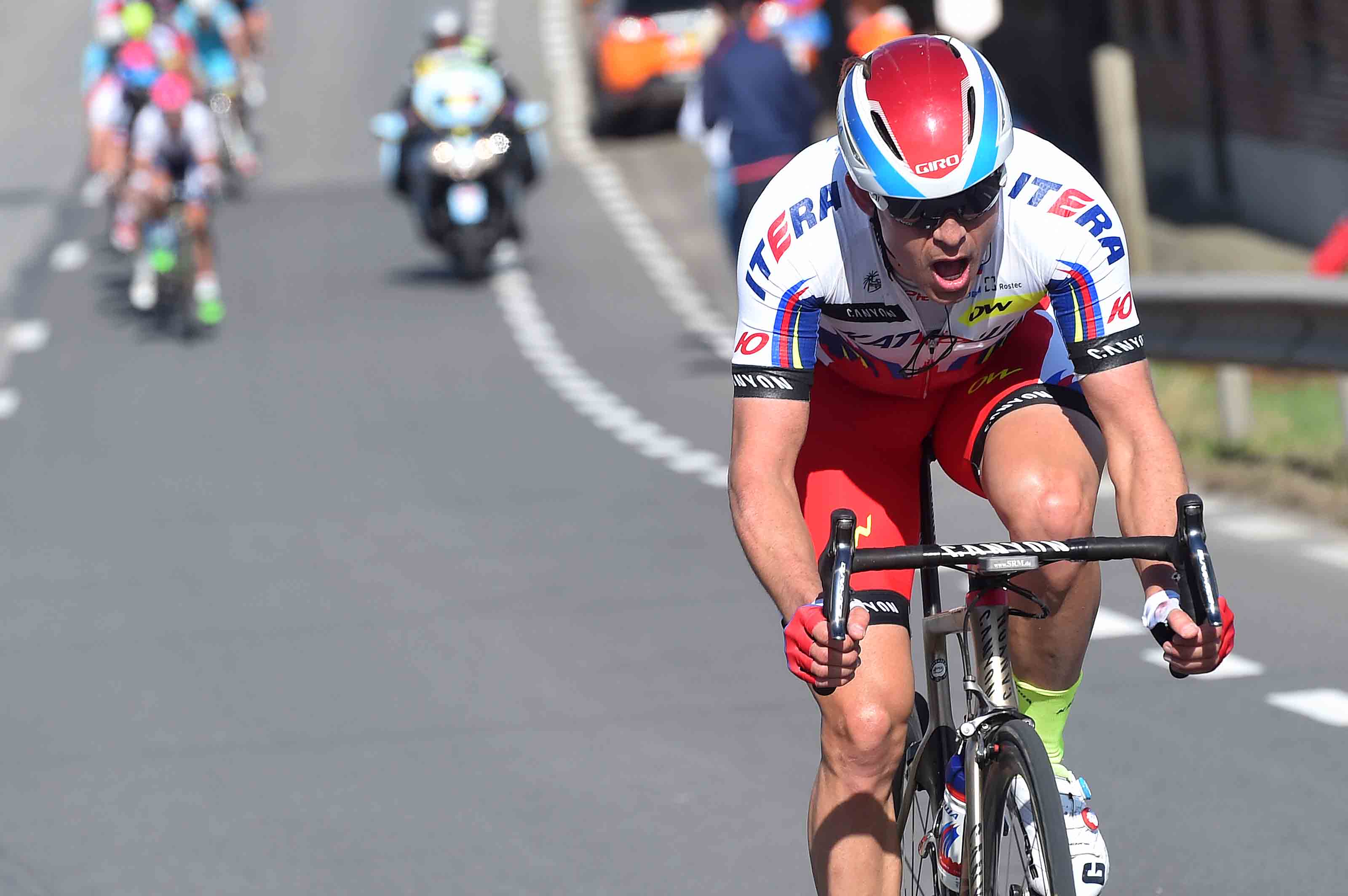
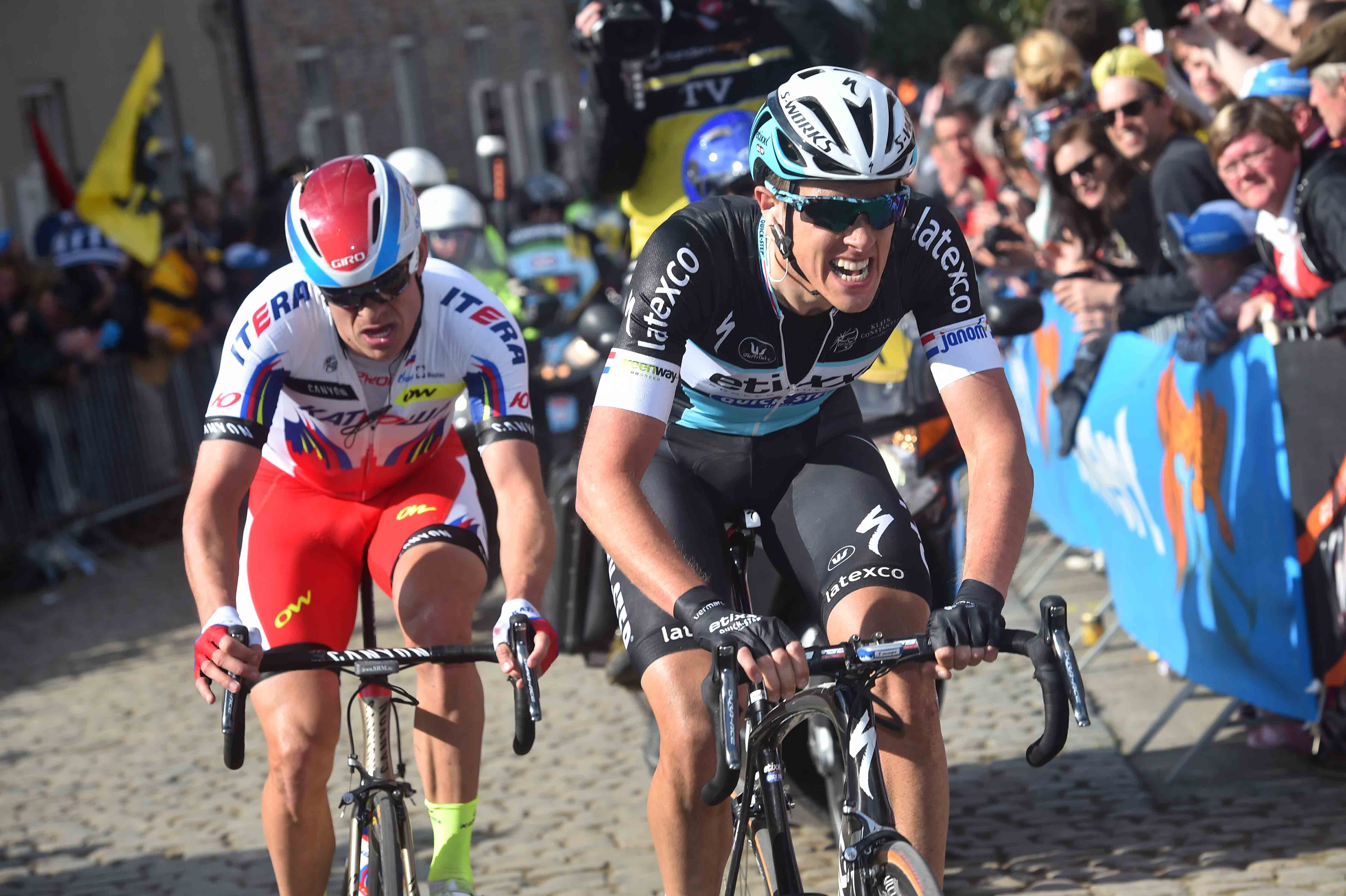
Alexander Kristoff’s last words before taking the start of the Tour of Flanders were to prove oddly prescient. “I don’t have to attack today, but sometimes attack is the best form of defence,” he told reporters, a rare moment of insight amid the nervous sound bites as riders descended from the signing podium in the shadow of Bruges’ belfry.
The Norwegian arrived at the Ronde on the back of claiming three stages wins and the general classification at the Three Days of De Panne, and – defeat at Milan-San Remo notwithstanding – the consensus was that he would prove all but unbeatable in the event of a sizeable group sprint.
Deducing that nobody was going to give him a free ride all the way to Oudenaarde, Kristoff decided to get his retaliation in first over the top of the Kruisberg, tracking Niki Terpstra (Etixx-QuickStep) when he clipped off with almost 28 kilometres still to race.
“It was a little bit early but I didn’t want to let him go away because I thought: ‘Who was going to close it?’” Kristoff explained. Initially, he seemed to struggle to follow Terpstra, before his diesel engine kicked into action ahead of the Oude Kwaremont. By the final ascent, the Paterberg, Kristoff was even confident enough to hit the front at a pace Terpstra could follow but not surpass.
“He was really strong on the start and we got a good gap, but then I managed to find the rhythm and I could contribute,” Kristoff said.
“In the finale he was told on the radio that he was not to work with me but I told him, ‘Come on, you’ll get second at worst and that’s still a good result.”
With Greg Van Avermaet (BMC) and Peter Sagan (Tinkoff-Saxo) closing to within 15 seconds on the long, exposed run-in from the Paterberg to finish, Terpstra was compelled to put in a couple of more perfunctory turns on the front, before he manoeuvred Kristoff to the front once again in the final two kilometres.
Get The Leadout Newsletter
The latest race content, interviews, features, reviews and expert buying guides, direct to your inbox!
In theory, at least, Terpstra was in the box seat for the eventual two-up sprint, but such was Kristoff’s strength that he had no need for the kind of trickery Katusha staff member Sergei Outshakov used to routinely employ to win from such situations. After a couple of glances over his shoulder, Kristoff surged clear with 150 metres to go to claim a comfortable win.
“Of course he wanted to save his legs so he had a chance, but I was pretty confident I would still beat him,” Kristoff said. “I tried not to go really full gas in the last two kilometres, just save a little bit so I’d have something left for the sprint – and it was enough.”
History is filled with sprinters who have strived to make the metamorphosis into cobbled classics specialists. Where Sean Kelly and Johan Museeuw succeeded fully, others, such as Erik Zabel and Thor Hushovd didn’t manage to complete their transition by winning the Tour of Flanders or Paris-Roubaix.
“I want to be good in the classics and not only a sprinter, and winning the Tour of Flanders is proof that you are a classics rider. As you get older you normally get a little slower but for the classics maybe you get better because you can handle long distances better,” said Kristoff, who was diplomatic when asked if his achievements had now overhauled those of his fellow countryman Hushovd.
“Now I’ve won two monuments, so at least I’m getting closer, but he delivered for many years. If you put all the results together I think he is maybe better, but maybe in a few years I can catch him.”
Transformation
Kristoff’s long road to this point began, ironically enough, with victory over Hushovd in the Norwegian championships in 2007, when he was just 19 years of age, though at that point he was still very much in the shadow of his contemporary and Maxbo-Bianchi teammate Edvald Boasson Hagen.
On reaching the WorldTour in 2010 with BMC, Kristoff went on to have two solid but unspectacular years at BMC before his career was illuminated by his switch to Katusha in 2012. Bronze at the London 2012 Olympics marked a breakthrough, as did a quietly impressive spring the following year, and he then announced himself formally with victory at Milan-San Remo last season.
“Every year I got a little bit better but it’s been many years of work,” Hushovd said. “I’ve trained in the same way since I was a junior but in my first years I was struggling and dropped in all of these races, I wasn’t even close. I’ve seen development every year, but it was small steps.”
Kristoff has appeared to take a particular leap forward in the past two years, however, as demonstrated by his startling show of dominance at the Three Days of De Panne and, in particular, the surprising time trial performance that sealed overall victory.
“My shape is really good, I showed that in time trial because I’m normally not a good time triallist,” he said. “I haven’t really worked a lot on the time trial bike so for sure that gave me confidence but it also cost energy so I was also worried I might be a little too tired.”
Come the final hour of racing, however, there seemed little danger of Kristoff exhausting his reserves of energy, while others began to fade behind him. “If you are 15 seconds up in a normal race it’s easy to bridge up,” he said. “But in a race like this where people are so tired at the end, those 15 seconds are too much.”

Barry Ryan was Head of Features at Cyclingnews. He has covered professional cycling since 2010, reporting from the Tour de France, Giro d’Italia and events from Argentina to Japan. His writing has appeared in The Independent, Procycling and Cycling Plus. He is the author of The Ascent: Sean Kelly, Stephen Roche and the Rise of Irish Cycling’s Golden Generation, published by Gill Books.